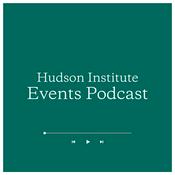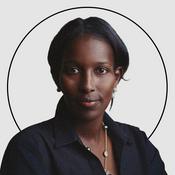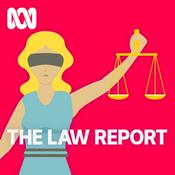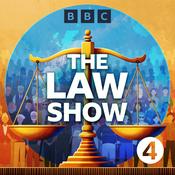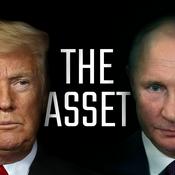53 episodes

Reimagining Global Governance: Augusto Lopez-Claros on the Movement for a Second UN Charter
2025/12/10 | 9 mins.
In this excerpt from CBC Ideas, Augusto López-Claros reflects on a rapidly changing world and the civic movements demanding that the UN evolve with it. From the failures of the current system to the rising pressure from civil society, he outlines why the UN Charter’s original architects left behind a little-known pathway — Article 109 — designed to ensure periodic review. Nearly 80 years later, that review has never happened. This episode explores why now may be the moment to invoke it, and how a global coalition is working to modernize multilateralism for the 21st century.Learn more on GlobalGovernanceForum.org

Martin Kreutner on the Perils of Strongman Diplomacy
2025/7/20 | 49 mins.
Martin Kreutner, Dean Emeritus of the International Anti-Corruption Academy and a distinguished former member of the Austrian Federal Appeals Tribunal traces the historical roots of our present global order and compellingly argues that the shift to various forms of strongman diplomacy currently under way, in the spirit of the 1945 Yalta conference that established the key political parameters of the United Nations, is likely to be costly for human well-being. Much better to build a more inclusive system, that gives voice to people everywhere and recognizes that we live in a different world in which economic and political power is more diffuse and confronting myriad global challenges which require stronger international cooperation. Learn more on GlobalGovernanceForum.org

Guy Sinclair on why the UN needs to adapt to 21st century realities
2025/6/04 | 39 mins.
Professor Guy Sinclair explains how the UN has, over time, diverged from its original Charter, adapting in response to global shifts—sometimes enhancing its relevance, but at other times straining its legitimacy. Sinclair outlines four key factors driving institutional change: external shocks, internal dynamics, legal mechanisms, and shared narratives. As new technologies like AI and autonomous weapons reshape global threats, he anticipates further evolution in how international organizations operate. We also discuss the strain on the UN’s development agenda—especially the Sustainable Development Goals—as geopolitical shocks and donor fatigue undercut progress. Sinclair addresses concerns about the UN’s diminished authority in peace and security, citing the growing irrelevance of Security Council authorization. He warns that the increasing role of private and state donors may skew UN priorities, challenging its legitimacy. Finally, we explore whether collective security remains a viable goal and whether reform should be gradual or transformative. Through it all, Sinclair urges a critical but hopeful approach, recognizing the UN’s enduring potential amid deep systemic challenges.Learn more on GlobalGovernanceForum.org

Cecelia Lynch on the Links between Inclusion, Peace and Prosperity
2025/5/15 | 38 mins.
Cecelia Lynch, a Professor of Political Science at the University of California, is a leading thinker on the importance of inclusion as a catalyst for promoting sustainable, peaceful, social transformations. The idea is that inclusion should not just be limited to nation states but should from the outset involve those directly impacted by conflicts, so that they play a leading role in the resolution process. Radical inclusion broadens participation to include marginalized groups like local communities, women, and non-state actors. It also involves local communities and their unique forms of knowledge in the stewardship of environmental protection, peace building initiatives and conflict resolution, and the design of strategies aimed at improving the livelihoods of marginalized groups around the world. A peace and prosperous world are an impossible achievement if it does not include the voices of the voiceless. Learn more on GlobalGovernanceForum.org

Sundeep Waslekar on Our Civilizational Crises
2025/4/08 | 42 mins.
Sundeep Waslekar eloquently explains why current nationalisms and our obsession with the primacy of the nation state are not able to deliver practical solutions to the problems that threaten our future as a human family. In addition to reforms to our current UN-based global governance architecture we also need a new philosophical and ethical framework that is consistent with the idea that we are one human family, inhabiting one planet and that our survival as a human species is inextricably linked to the recognition of our common humanity. Without this anchoring based on enlightened human values, we risk being overwhelmed by multiple crises and the resulting human suffering. We must imagine a better future and take the concrete steps to get there.Learn more on GlobalGovernanceForum.org
More Government podcasts
Trending Government podcasts
About Global Governance Podcast
Listen to Global Governance Podcast, 5-4 and many other podcasts from around the world with the radio.net app
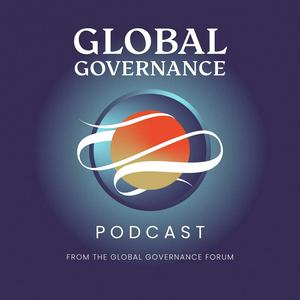
Get the free radio.net app
- Stations and podcasts to bookmark
- Stream via Wi-Fi or Bluetooth
- Supports Carplay & Android Auto
- Many other app features
Get the free radio.net app
- Stations and podcasts to bookmark
- Stream via Wi-Fi or Bluetooth
- Supports Carplay & Android Auto
- Many other app features


Global Governance Podcast
download the app,
start listening.




